How to Keep Ducklings Alive: A Step-By-Step for Method Guides
- March 13, 2024
- 0 comment
Raising ducklings, particularly those as captivating as Mandarin ducklings, presents unique challenges and rewards. Our journey through various breeding seasons has equipped us with invaluable insights.
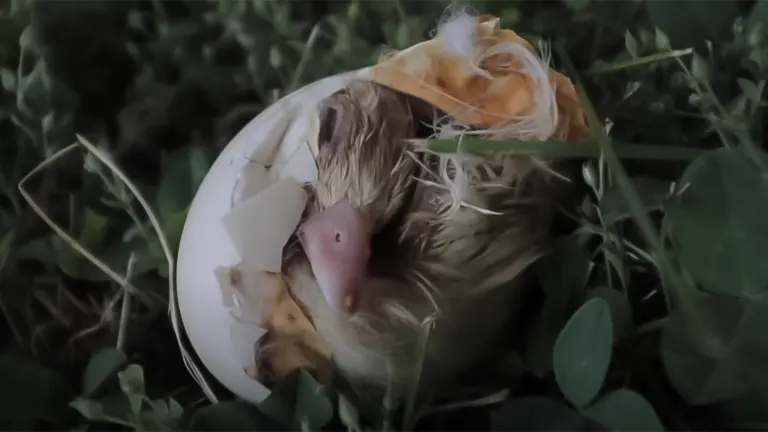
This article serves as a comprehensive guide, drawing from our firsthand experiences with Mandarin ducklings. Our aim is to share strategies and practices that ensure the well-being and survival of these exquisite birds.
List of How to Keep Ducklings Alive:
- Optimal Habitat for Growth
- Nutritional Needs
- Socialization and Handling
- Health Monitoring and Care
- Environmental Enrichment
- Protection from the Elements
Understanding the Mandarin Duck’s Unique Needs
Mandarin ducks, celebrated for their extraordinary beauty and complex courtship behaviors, demand attentive care, particularly during their early, vulnerable duckling phase. Ensuring their well-being necessitates a meticulous approach to creating a supportive environment, providing a nutritionally rich diet, and fostering healthy social interactions.
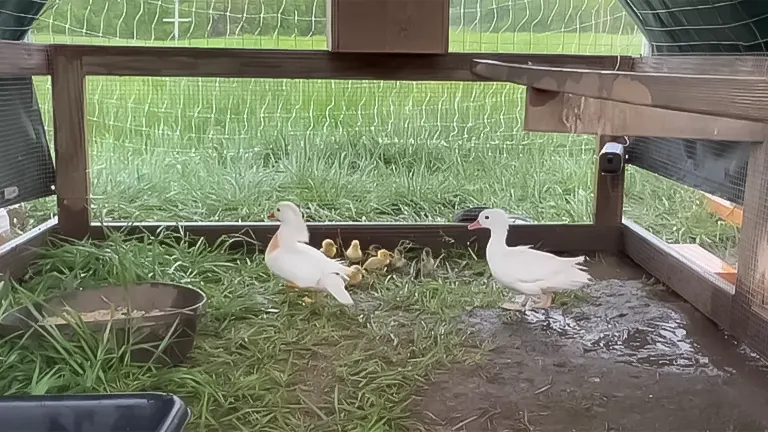
This involves crafting habitats that simulate their natural surroundings, offering a balanced diet to promote optimal growth, and managing their interactions to encourage positive social development. Understanding and catering to these unique needs are crucial for the health and survival of Mandarin ducklings, reflecting a deep commitment to preserving the vibrancy and diversity of this exquisite species.
6 Methods of How to Keep Ducklings Alive Guidelines
1. Optimal Habitat for Growth
Creating a safe and nurturing habitat is paramount. Ducklings are prone to hypothermia and predation, making a well-designed brooder or outdoor pen essential. Our strategy involves:
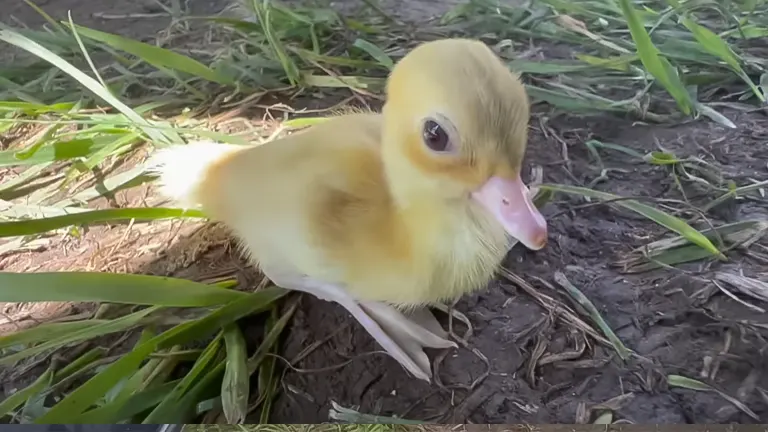
- Temperature Regulation: Maintaining a warm, consistent temperature in the brooder, gradually decreasing as they feather out.
- Protection: Ensuring the habitat is predator-proof and secure from potential hazards.
- Space: Providing ample space for exploration and exercise, crucial for healthy development.
2. Nutritional Needs
Diet plays a critical role in the health and development of ducklings. They require a balanced intake of proteins, vitamins, and minerals.
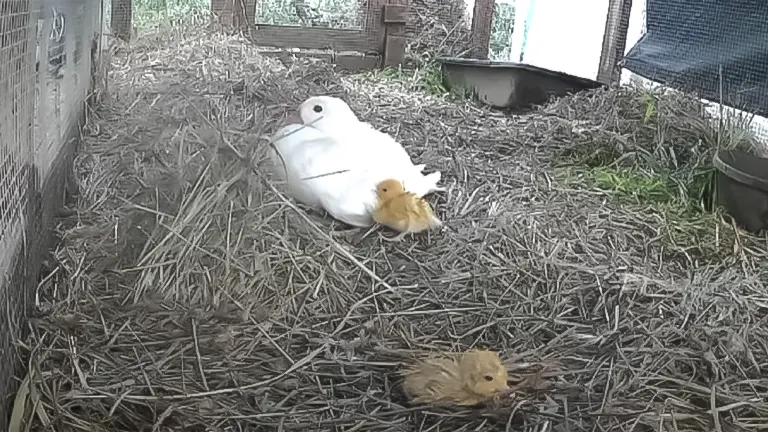
- Starter Feed: Opt for a high-quality waterfowl starter feed, rich in protein to support rapid growth.
- Supplements: Introduce appropriate supplements to prevent nutritional deficiencies, focusing on niacin for leg strength.
- Clean Water: Access to clean, fresh water is non-negotiable, not only for drinking but also for their natural dabbling behavior.
3. Socialization and Handling
Early socialization influences the temperament of ducklings. Gentle handling and interaction help in developing trust and sociability.
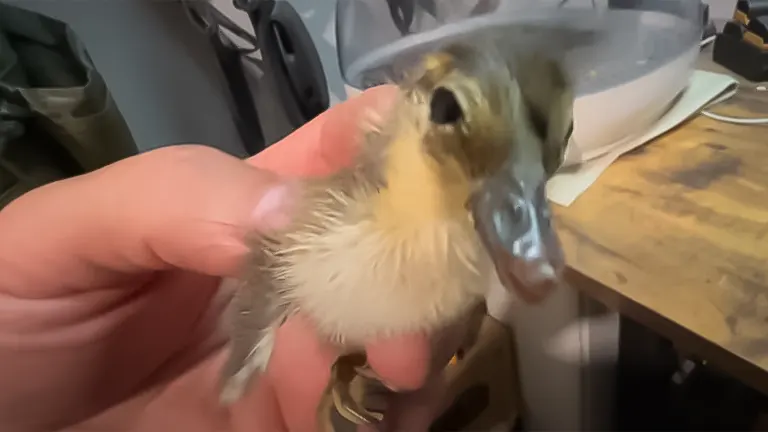
- Regular Interaction: Spend time daily with your ducklings to acclimate them to human presence.
- Group Rearing: Raising ducklings in groups fosters natural social behaviors and reduces stress.
4. Health Monitoring and Care
Vigilant observation for signs of distress or illness is crucial. Quick intervention can be the difference between life and death.
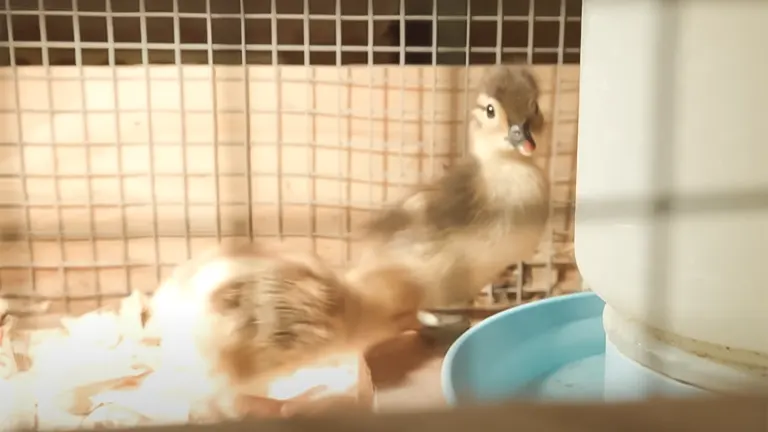
- Regular Check-ups: Conduct daily health checks, looking out for signs of distress, injury, or illness.
- Cleanliness: Maintain hygiene in the living quarters to prevent the spread of disease.
- Veterinary Support: Establish a relationship with a vet experienced in avian care for emergencies and health consultations.
5. Environmental Enrichment
Ducklings thrive in environments that mimic their natural habitats. Incorporating elements that encourage natural behaviors promotes physical and mental well-being.
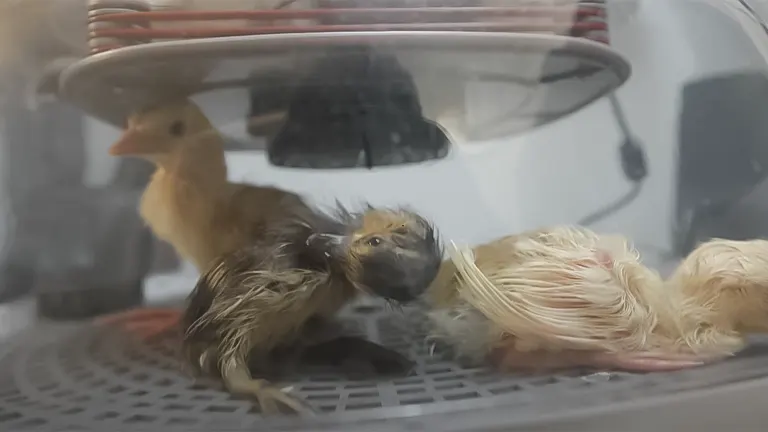
- Water Access: Safe, shallow water areas for swimming will help in developing waterproofing and encourage exercise.
- Foraging Opportunities: Offering opportunities to forage for natural foods enhances their diet and keeps them engaged.
6. Protection from the Elements
Weather conditions can pose significant risks to ducklings. Adequate shelter and strategic planning are essential to safeguard them from extreme temperatures and inclement weather.
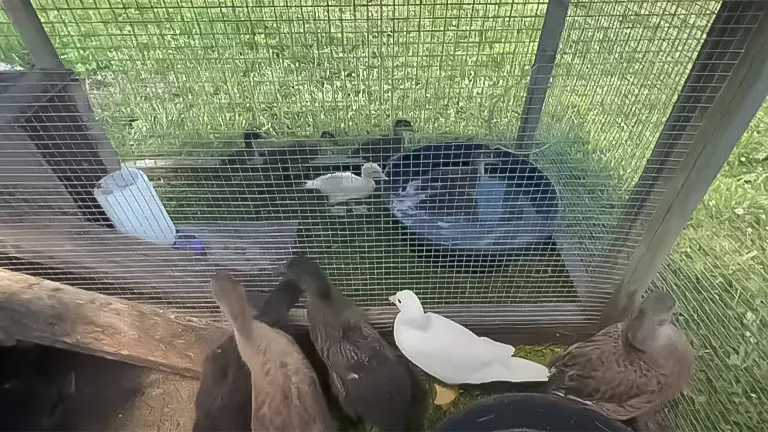
- Shelter: Provide a dry, warm shelter that can protect them from rain, wind, and cold.
- Weather Planning: Monitor weather forecasts and adjust care practices accordingly, especially during the fragile early weeks.
Learning from Experience
Our experience in 2020 was a turning point. After losing ducklings to environmental and care challenges, we adopted a multifaceted approach, including incubation, parental rearing, and brooder intervention. This holistic strategy accounted for varying outcomes, teaching us the importance of flexibility and adaptability in our care practices.
Additional Tips
Here are five additional tips for keeping ducklings alive, complementing the step-by-step method guidelines:
- Provide a Stress-Free Environment: Minimize loud noises and sudden movements around your ducklings. A calm and quiet setting helps prevent stress, promoting healthier growth and development.
- Ensure Constant Supervision During Water Play: Ducklings love water but can quickly get into trouble. Always supervise their swimming sessions until they’ve grown enough to handle themselves safely in water.
- Regularly Clean Housing: Maintain cleanliness in their living area to prevent the buildup of harmful bacteria and parasites. Regular cleaning reduces the risk of diseases and keeps your ducklings healthy.
- Offer Safe Foraging Opportunities: If possible, allow your ducklings to forage under supervision in a safe, enclosed area. It aids in their natural development and provides nutritional variety.
- Monitor Growth and Development: Keep an eye on each duckling’s growth and development. Early detection of any abnormalities or delays allows for prompt action, ensuring the well-being of your flock.
Incorporating these additional tips into your care routine will further enhance the chances of raising healthy, happy ducklings.
Reflections and Recommendations
Through trial and error, I’ve learned that the key to raising Mandarin ducklings lies not only in meticulous care and planning but also in adapting to the unpredictable nature of their breeding. My experiences, while marked by both joy and sorrow, have enriched my understanding of these remarkable birds. For those considering embarking on this journey, I recommend starting with a clear plan, being prepared for the unexpected, and maintaining a commitment to learning from each hatching season.
Raising Mandarin ducklings is not for the faint of heart. It demands a blend of knowledge, patience, and resilience. However, the reward of watching these vibrant, lively birds grow and thrive under your care is an unparalleled experience. For anyone passionate about aviculture and willing to face the challenges head-on, the journey of raising Mandarin ducklings can be incredibly fulfilling.
Related Articles:
- Best Bedding For Chickens
- Best Safe Chicken Coop Heater
- 8×8 Chicken Coop Plans
- Turning a Shed Into a Chicken Coop
- How to Make a Chicken Coop Out of Pallets
- Best Sand for Chicken Coop
- How To Insulate a Chicken Coop
- How To Heat a Chicken Coop
- How To Keep Water from Freezing in Chicken Coop
- How to Build a Chicken Coop
- How To Build Chicken Nesting Boxes
- How to Raise Happy and Healthy Chickens in Your Backyard
- When Can Chicks Go Outside? Timing and Tips for a Smooth Transition
- 12 Reasons why Ducks are Better than Chickens
- Best Automatic Chicken Coop Doors 2024: Expert Reviews & Buyer’s Guide
- Best Fans for Chicken Coop 2024: Effective Cooling Solutions Reviewed
Final Concluding Thoughts
Raising Mandarin ducklings is a journey filled with learning and adaptation. By providing an optimal habitat, addressing nutritional needs, fostering socialization, ensuring diligent health care, offering environmental enrichment, and protecting them from the elements, we can significantly improve their survival rates and quality of life. Our experiences underscore the commitment required to raise healthy, vibrant ducklings, and we hope this guide empowers you with the knowledge to embark on this rewarding endeavor.
Frequently Asked Questions
- What temperature should the brooder be for newly hatched ducklings?
Newly hatched ducklings require a warm environment. Start with a brooder temperature of around 95°F (35°C) during the first week, and decrease it by 5°F each week until they are feathered or the ambient temperature matches their comfort level. - How often should ducklings be fed, and what type of food is best?
Ducklings should have constant access to food and water. Start them on a high-protein waterfowl starter feed for the first 2-3 weeks, then gradually switch to a grower feed. Avoid medicated feeds designed for chickens, as they can harm ducklings. - Do ducklings need water to swim in?
While ducklings don’t need water for swimming immediately, providing a shallow dish of water they can safely climb in and out of helps them stay hydrated and practice natural behaviors. Ensure they can’t get soaked or chilled. - How can you ensure ducklings don’t drown in their water source?
Use shallow water dishes and place marbles or small stones inside to prevent drowning. Always supervise swimming sessions until they are older and more capable swimmers. - What are the signs of illness in ducklings?
Symptoms of illness include lethargy, lack of appetite, uncoordinated movements, abnormal droppings, and signs of distress like excessive peeping. Immediate veterinary attention is recommended if any of these signs are observed. - How can I prevent my ducklings from getting sick?
Maintain clean living conditions, provide a nutritious diet, ensure fresh water is always available, and minimize stress by handling them gently and keeping their environment quiet and secure. - Do ducklings require vaccinations?
Generally, ducklings do not require vaccinations. However, consult with a vet familiar with poultry to determine if any are recommended based on local disease risks. - Can ducklings be raised with chicks or other poultry?
Yes, but with caution. Ducklings are messier and require more water, which can create a damp environment unsuitable for chicks. Additionally, ensure that their dietary needs are being met, as ducklings require more niacin than chicks. - When can ducklings go outside?
Ducklings can start spending short periods outside in a secure pen by 2-3 weeks old, weather permitting. Ensure they have access to shelter and water, and fully supervise to protect them from predators. - How do you handle ducklings safely?
When handling ducklings, use both hands to support their body and keep them close to your chest to prevent falls. Handle them gently and minimally to reduce stress and the risk of injury.
We’re eager to connect with you! Please share your personal experiences and insights on “How to Keep Ducklings Alive: A Step-by-Step Method Guidelines” in the comments section below. Your unique stories and advice could greatly assist fellow enthusiasts in navigating the challenges of raising ducklings successfully. Whether it’s a tip you’ve discovered, a challenge you’ve overcome, or a question you’re pondering, your contribution can make a significant difference in the community’s collective knowledge and decision-making. Let’s learn and grow together!

Edward Smith
Forestry AuthorWoodworking is about more than crafting; it's a harmonious connection with nature, mastering tools, and preserving our environment. I'm here to share my knowledge and experiences with you, forging a future where we can embrace wood's beauty and utility while safeguarding our forests' health and diversity.













Leave your comment